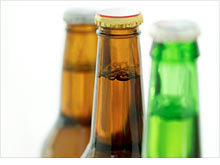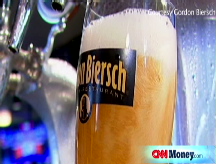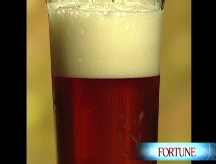Merchants cheer Sunday booze sales as blue laws fall
Colorado wine and beer retailers will welcome customers for the first time this Sunday as their state becomes the latest to strike down Prohibition Era bans.
(Fortune Small Business) -- On Sundays, Jeanne McEvoy sits in the office of her Loveland, Colo., liquor store and turns away customers.
She would, naturally, prefer to make a sale - a bottle of wine for a picnic at Lake Loveland, or a six-pack of beer to enjoy at nearby Rocky Mountain National Park - but a Prohibition-era state law forbids sales of alcohol on Sundays.
"People pull in and they'll see my car in the parking lot, or they see my in my office, so they assume I'm open," she says. "I don't like to be cruel, so I'll just open the door and tell them, 'Sorry, I can't sell to you on Sunday.' They look at me like, 'Huh? Are you kidding?'"
That all changes over this Fourth of July weekend. On July 1, a new law legalizing Sunday sales throughout the state goes into effect in Colorado, allowing McEvoy and other business owners like her to open their doors.
"Sunday is going to be a nice day for me," she says.
Colorado is the 13th state to repeal such "blue laws" since 2002, when the national liquor lobby starting organizing retailers across the country to fight them. That movement achieved something of a groundswell during the 2008 legislative season, as both Alabama and Georgia came close to passing bills that would legalize Sunday sales, while New York and Virginia expanded recently enacted laws allowing Sunday booze-buying. Meanwhile, small-business owners in states including Connecticut and Texas are organizing to make a pass at legalization next year.
That leaves 15 states with blue laws on the books, preventing wine and liquor stores - the vast majority of which in the U.S. are small businesses - from opening on the second-busiest shopping day of the week in the U.S.
For McEvoy, that meant an estimated loss of 4% to 6% of her weekly revenue, a significant chunk of the $1 million in sales she does annually. Government analyses show that alcohol sales generally increase nearly 5% in the first year after a state allows Sunday sales. Groups like Mothers Against Drunk Driving have largely remained silent on the debate, a tacit acknowledgment that they don't consider Sunday sales a significant factor in underage drinking or DUI rates.
But there are plenty of independent retailers who prefer things the way they are. They say that opening their shops an extra day of the week increases overhead - namely, energy and labor costs - without increasing sales.
"If you drink a bottle of wine with dinner every night, and I'm suddenly open for a seventh day, are you going to start drinking two bottles of wine with dinner?" asks Alan Wilensky, owner of Max's Package Store in East Lyme, Conn., and president of the Connecticut Package Stores Association. "You'll just buy less on Mondays and Tuesdays, but I'll have to open and pay overtime and additional electricity costs on Sundays."
Such owners are also fiercely protective of their one day off, when they know they can spend time with their families without worrying about losing business to the competition.
Despite the efforts of well-intentioned crusaders like Wilensky, whose group helped strike down a 2005 proposal in the Connecticut state legislature to allow Sunday sales, a nation without blue laws seems increasingly inevitable.
Colorado itself had suffered previous, failed attempts to repeal, but mounting pressures and fiscal realities eventually made the difference. In the past few years, Colorado legislators "finally started to understand that," says state Sen. Jennifer Veiga, "which is why we finally saw movement on this bill."
Residents in states like Connecticut - the only state in the Northeast to still ban Sunday sales - are simply crossing the border to do their weekend shopping, which means the state itself is losing sales tax revenue.
"We lose thousands of bucks every Sunday, and the state is losing sales taxes and liquor taxes," says Chris Kull, owner of WineWise in Greenwich, Conn.
And even that state has already repealed some blue laws: Connecticut auto dealers were banned from opening on Sundays until they successfully sued the state in 1994. Kull says his allied colleagues view litigation as an expensive last resort, but one they will consider if their lobbying efforts prove fruitless. ![]()
Georgia breweries dry up: Local laws that limit beer tastings hurt independents.
Small breweries, big beer: FSB gets a taste of why business is booming at craft breweries.
Employees from hell: Drunken forklift driver
-
The Cheesecake Factory created smaller portions to survive the downturn. Play
-
A breeder of award-winning marijuana seeds is following the money and heading to the U.S. More
-
Most small businesses die within five years, but Amish businesses have a survival rate north of 90%. More
-
The 10 most popular franchise brands over the past decade -- and their failure rates. More
-
These firms are the last left in America making iconic products now in their twilight. More











